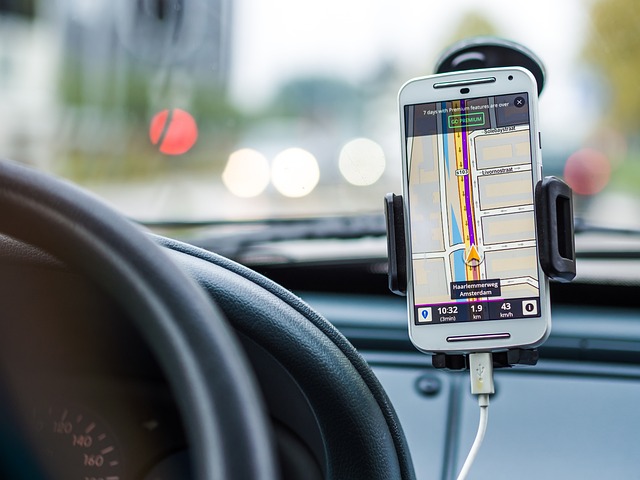Exploring the Potential of Wireless Charging for Electric Vehicles
11xplay online id, anna reddy book, golden7777.com admin:Exploring the Potential of Wireless Charging for Electric Vehicles
In recent years, electric vehicles (EVs) have gained significant popularity as a sustainable mode of transportation. With growing concerns about climate change and environmental degradation, the shift towards EVs has become more crucial than ever. One of the key challenges faced by EV owners is the need for frequent charging, which can be time-consuming and inconvenient. However, wireless charging technology offers a promising solution to this issue.
Wireless charging, also known as inductive charging, allows EVs to charge without the need for physical cables. This technology uses electromagnetic fields to transfer energy between a charging pad on the ground and a receiver on the vehicle. By simply parking the EV over the charging pad, it can automatically start charging, making the process seamless and hassle-free.
The potential of wireless charging for EVs is immense, offering several advantages over traditional cable-based charging systems. Let’s delve deeper into how this technology can revolutionize the EV industry.
1. Convenience and Ease of Use
One of the primary benefits of wireless charging is the convenience it offers to EV owners. Instead of having to physically plug in the vehicle for charging, drivers can simply park their cars over a charging pad and let the technology do the rest. This eliminates the need to handle bulky cables and reduces the risk of tripping hazards, making the charging process much more user-friendly.
2. Enhanced Safety
Wireless charging also enhances safety by reducing the risk of electrocution and electrical fires associated with traditional charging cables. Since there are no exposed wires or connectors involved, the chances of accidents are significantly lower. This makes wireless charging a safer option for both EV owners and the general public.
3. Increased Efficiency
Wireless charging systems are designed to be highly efficient, ensuring optimal energy transfer between the charging pad and the vehicle. This results in faster charging times and minimal energy loss, making the process more cost-effective and environmentally friendly. Additionally, wireless charging can be integrated into smart grid systems, allowing for more efficient energy management and distribution.
4. Improved Aesthetics
Another advantage of wireless charging is its aesthetic appeal. Since there are no visible charging cables or connectors, EV owners can enjoy a cleaner and more streamlined charging experience. This not only enhances the overall look of the vehicle but also contributes to a more organized and clutter-free environment.
5. Versatility and Flexibility
Wireless charging systems can be installed in a variety of locations, including homes, workplaces, and public parking lots. This versatility allows EV owners to charge their vehicles wherever they go, without being limited by the availability of charging stations. Additionally, wireless charging pads can be embedded into roads and parking spaces, creating a seamless charging infrastructure that integrates with existing urban environments.
6. Sustainability
By eliminating the need for disposable charging cables and connectors, wireless charging systems contribute to a more sustainable and eco-friendly charging solution. This reduction in waste production and resource consumption aligns with the overall goal of promoting greener transportation options and reducing carbon emissions.
In conclusion, wireless charging technology holds immense potential for revolutionizing the EV industry and overcoming the challenges associated with traditional charging methods. With its convenience, safety, efficiency, and sustainability benefits, wireless charging is poised to become the future of EV charging infrastructure.
FAQs
Q: How does wireless charging work for electric vehicles?
A: Wireless charging uses electromagnetic fields to transfer energy between a charging pad on the ground and a receiver on the vehicle. When the EV is parked over the charging pad, energy is transferred wirelessly to charge the vehicle’s battery.
Q: Is wireless charging as efficient as traditional cable-based charging?
A: Yes, wireless charging systems are designed to be highly efficient, ensuring optimal energy transfer between the charging pad and the vehicle. This results in faster charging times and minimal energy loss.
Q: Can wireless charging be installed at home?
A: Yes, wireless charging pads can be installed at home, allowing EV owners to conveniently charge their vehicles in their own garage or driveway. This eliminates the need for external charging stations and provides greater flexibility in charging options.
Q: Are there any safety concerns with wireless charging?
A: Wireless charging is considered to be safer than traditional cable-based charging systems, as there are no exposed wires or connectors involved. This reduces the risk of electrocution and electrical fires, making it a safer option for EV owners.
Q: How much does it cost to install a wireless charging system for electric vehicles?
A: The cost of installing a wireless charging system can vary depending on the type of system and the location. While initial installation costs may be higher than traditional charging stations, the long-term benefits and convenience of wireless charging make it a valuable investment for EV owners.







